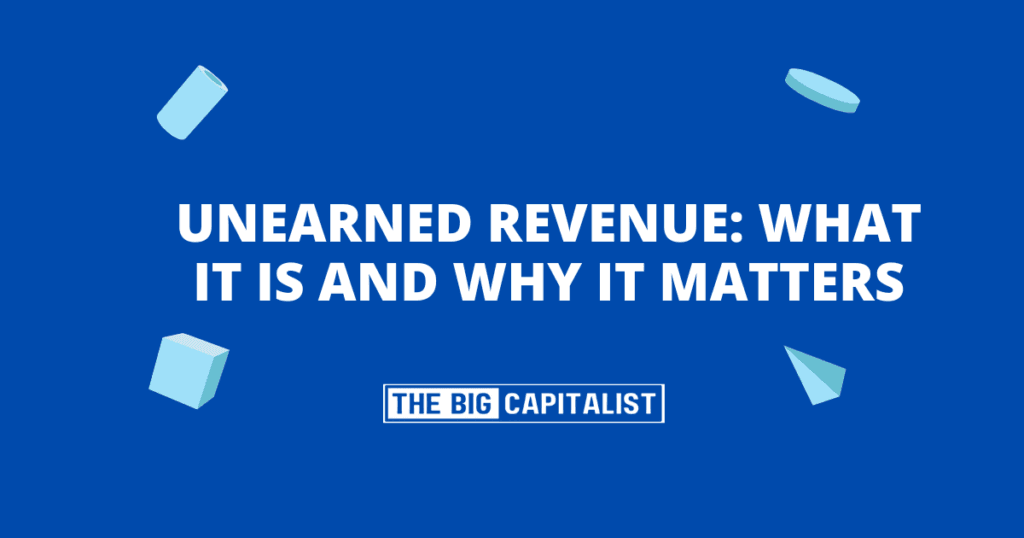Unearned revenueThe company still owes the customer. It records this payment as a liability on its balance sheet, not as income. This highlights why unearned revenue matters.
When the company delivers the product or service, the liability changes to earned revenue. This is recorded as income in the accounting books. Understanding the transition is key – unearned revenue why it matters.
Examples of Unearned Revenue
Here are some common situations where unearned revenue applies:
- Subscription Services:
- Platforms like Netflix or Spotify charge users for monthly or yearly subscriptions.
- The money collected for the period not yet served is unearned revenue. Knowing unearned revenue and its application explains why it matters.
- Prepaid Airline Tickets:
- Airlines collect payment for flights before the trip happens.
- The revenue becomes earned only after the flight is completed.
- Event Tickets:
- Payments for concert or sports tickets are unearned revenue until the event takes place. This is a clear example of unearned revenue, why it matters.
- Prepaid Insurance Premiums:
- Insurance companies receive premiums upfront but only earn the revenue over the term of the policy.
Unearned Revenue Why It Matters
Unearned revenue is important because it helps businesses stay organized and report finances correctly. Here’s why it matters: knowing the importance of unearned revenue is essential.
- Cash Flow Management:
- Unearned revenue gives businesses upfront cash to cover their expenses before delivering goods or services. Cash flow through unearned revenue – why it matters.
- Compliance with Standards:
- Correctly recording unearned revenue ensures the business follows accounting rules like GAAP or IFRS.
- Transparency:
- Showing unearned revenue as a liability keeps income reporting honest. It also gives investors a clear view of the company’s financial health. This transparency is a key reason why unearned revenue matters.
Unearned Revenue on the Balance Sheet
- Current Liability:
- If the company delivers the goods or services within a year, it records unearned revenue. This is classified as a current liability, demonstrating unearned revenue and why it still matters.
- Long-Term Liability:
- For longer commitments, unearned revenue goes under long-term liabilities.
- Conversion to Earned Revenue:
- As the company fulfills its promises, unearned revenue is gradually transferred from liabilities to income on the financial statements.
Accounting for Unearned Revenue
1. Recording Unearned Revenue (Initial Payment)
When a customer makes an advance payment, the business records:
• A debit to cash or accounts receivable (asset account).
• A credit to unearned revenue (liability account).
Example Entry:
Customer prepays $5,000 for a year-long subscription.
Debit: Cash $5,000
Credit: Unearned Revenue $5,000
2. Recognizing Earned Revenue (Delivery of Service)
As the service is delivered, the business moves a portion of the unearned revenue to the income statement as earned revenue.
Example Entry (Monthly Recognition):
Each month, $416.67 of the subscription is earned ($5,000 ÷ 12).
Debit: Unearned Revenue $416.67
Credit: Earned Revenue $416.67
Key Differences Between Earned and Unearned Revenue
| Aspect | Earned Revenue | Unearned Revenue |
|---|---|---|
| Definition | Money for delivered goods/services | Money for undelivered goods/services |
| Accounting Category | Income (Revenue) | Liability |
| When Recorded | After delivery or service completion | Upon receipt of advance payment |
Conclusion
Unearned revenue is money a business gets before giving the customer what they paid for. It’s important because it shows what the business still owes and helps keep financial records honest and clear.
Unearned Revenue Why It Matters is simple: it helps businesses follow the rules, plan better, and manage their money more wisely. When recorded the right way, it builds trust with customers and investors. Whether you’re selling subscriptions, event tickets, or services paid for in advance, knowing how unearned revenue works helps your business stay strong and fair.
FAQs: Unearned Revenue Why It Matters
Q1: What is unearned revenue?
A: It’s money a business gets in advance for something it hasn’t delivered yet. This money is a promise, so it’s counted as a liability (something the business still owes).
Q2: Unearned Revenue Why It Matters?
A: It shows the true financial health of a business. It also helps follow accounting rules and gives a clear picture to investors and customers.
Q3: How is unearned revenue recorded?
A: When the money comes in, it’s recorded as a liability. Once the service or product is delivered, it becomes earned revenue, or income.
Q4: What are some easy examples of unearned revenue?
A:
- Paying for a full year of Netflix in advance
- Buying a plane ticket before the flight
- Paying for insurance before the policy starts
- Buying a concert ticket weeks before the event
Q5: How does unearned revenue show up in financial statements?
A: At first, it shows up as a liability on the balance sheet. When the business provides what was promised, it moves to revenue on the income statement.
















